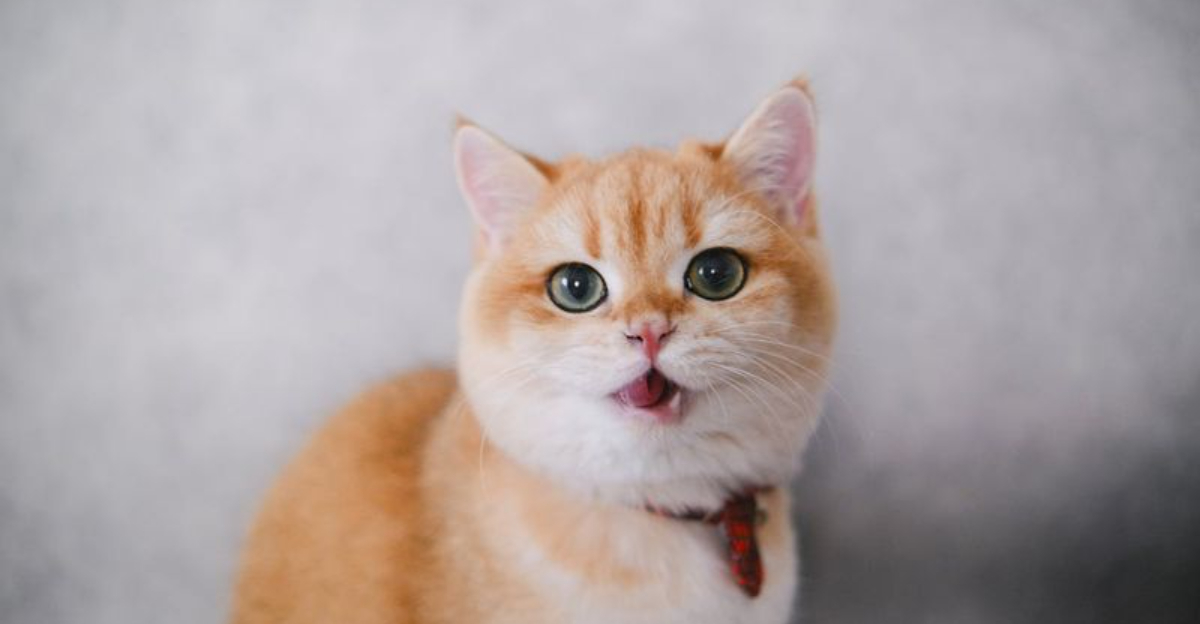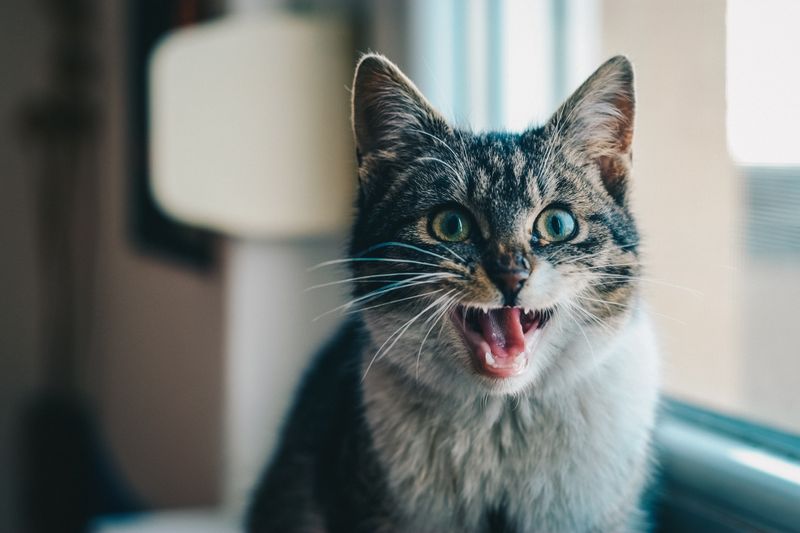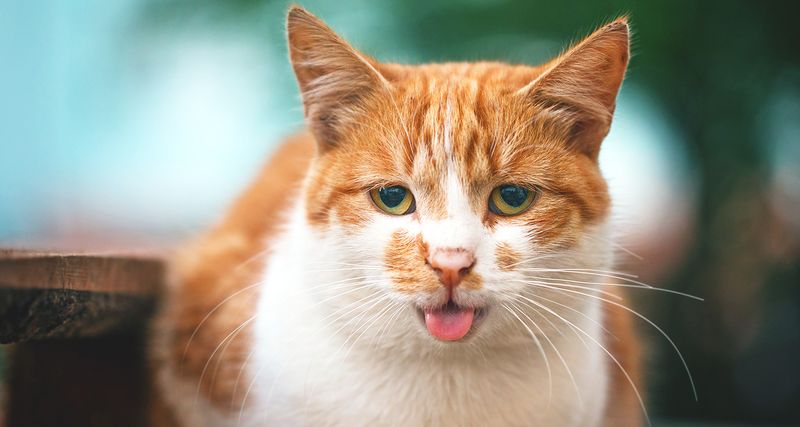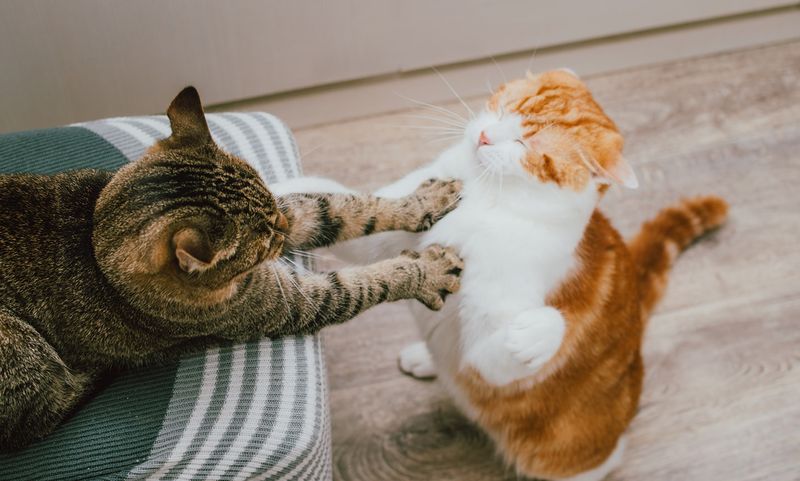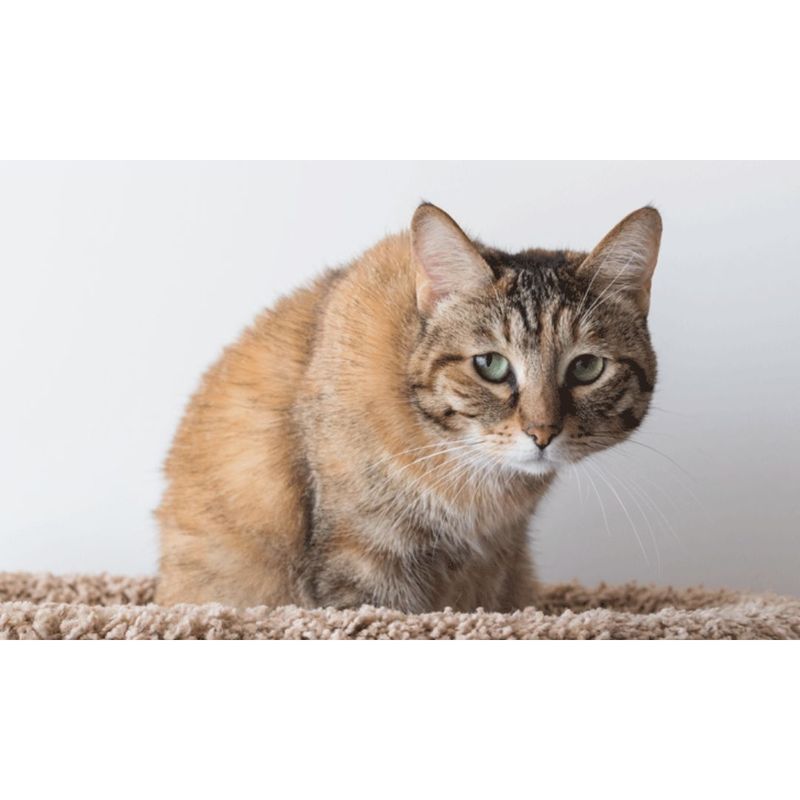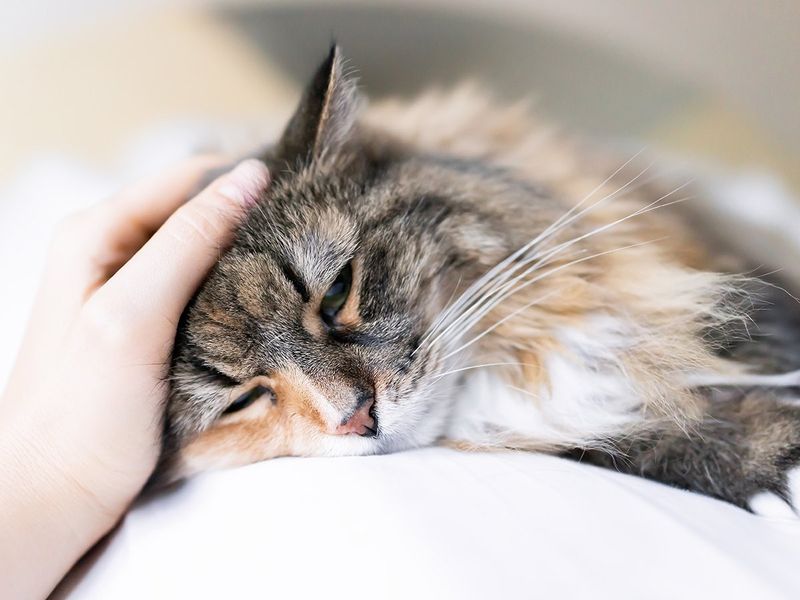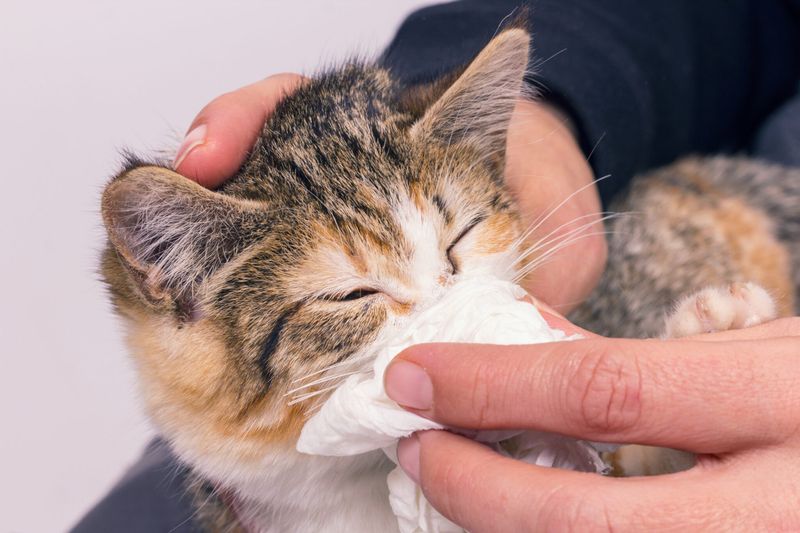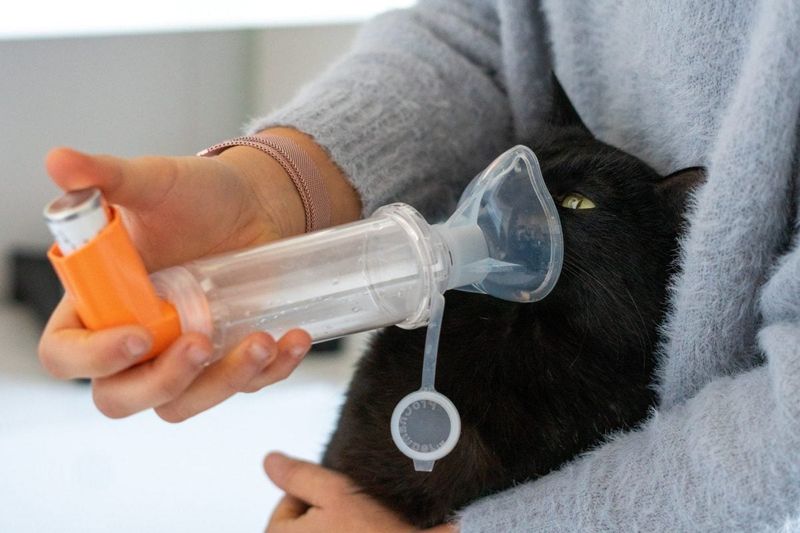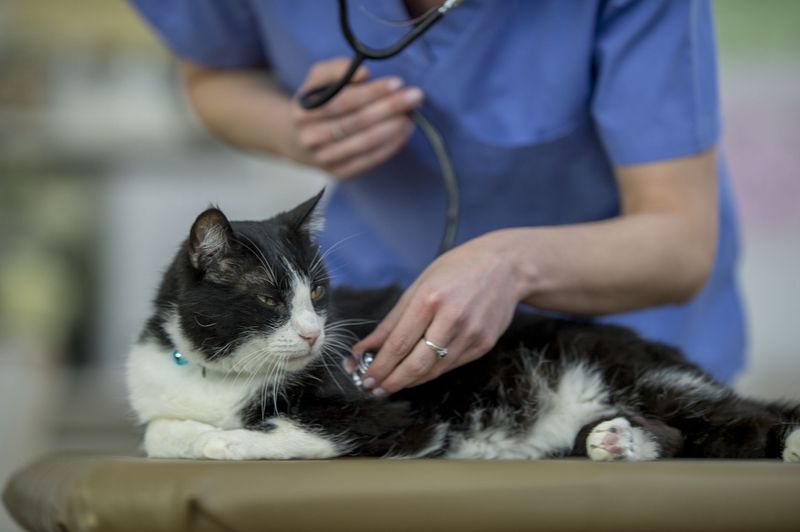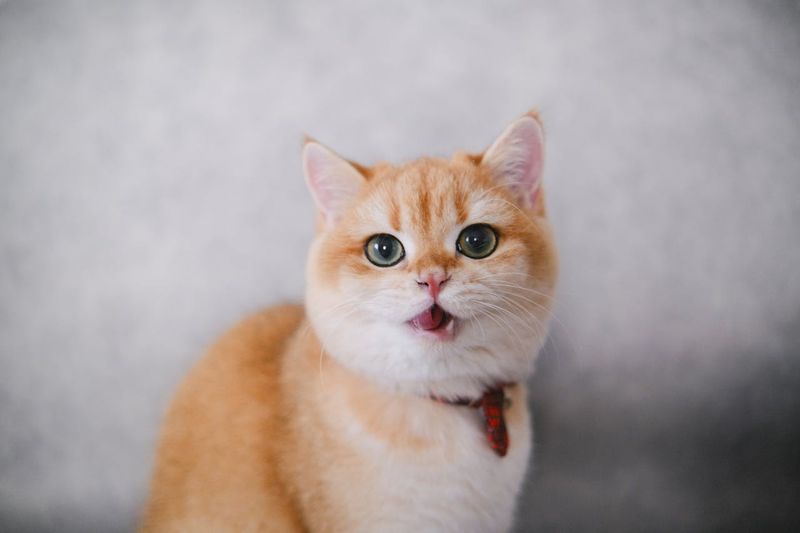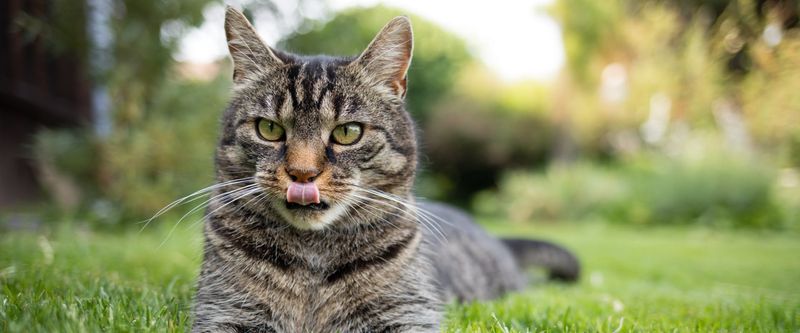📖 Table of Content:
Noticing your cat breathing rapidly can be an alarming experience, especially if it seems to come out of nowhere. Unlike dogs, cats don’t normally pant or breathe heavily, so when they do, it’s natural for pet parents to worry. But before you jump to the worst-case scenario, take a breath—fast breathing doesn’t always spell disaster. In fact, there are many reasons your cat might be inhaling a little quicker than usual, and not all of them require an emergency trip to the vet.
Understanding what’s normal and what’s not is key. Some causes are surprisingly harmless—like post-play exhaustion or a warm nap in the sun—while others may signal something more serious, such as respiratory distress or underlying illness. The tricky part is that cats are masters at hiding discomfort, so subtle signs like increased breathing rates might be one of the few clues you get that something’s off. That’s why it’s essential to be informed and observant rather than reactive and overwhelmed.
We’ll break down 10 common reasons your cat might be breathing fast, ranging from everyday explanations to red flags you shouldn’t ignore. We’ll also help you understand when it’s time to stay calm, monitor closely, or take immediate action. Let’s separate the harmless from the harmful—so you can keep your cool and keep your cat safe.
1. Overheating or Heatstroke
On hot days, cats may struggle to regulate their body temperature, especially in poorly ventilated spaces. You might see them breathing quickly, sometimes with their mouths open—a rare sight in felines. Unlike dogs, cats don’t typically pant, so this can be an early sign of heat-related stress. When combined with drooling, lethargy, or red gums, overheating becomes a serious concern. Heatstroke can escalate quickly, damaging internal organs if left unaddressed. Always ensure your cat has access to cool, shaded areas and plenty of water. In cases of extreme heat, move them to a cooler spot and consult your vet if their breathing doesn’t normalize.
2. Stress or Anxiety
Even subtle changes in your cat’s environment can trigger stress-related symptoms like rapid breathing. A new pet, a loud visitor, or a vet appointment might leave your cat overwhelmed and panting. Their fight-or-flight instincts kick in, releasing adrenaline and increasing their heart rate. Look for other signs of anxiety such as hiding, dilated pupils, or a puffed-up tail. Some cats are more sensitive than others, reacting strongly to even minor disruptions. You can help by offering a safe retreat and speaking calmly during stressful situations. If stress appears to be a frequent trigger, consider pheromone diffusers or professional behavioral support.
3. Physical Exertion or Play
After a wild zoomie session or a chase around the house, your cat may breathe faster as they cool down. Just like humans after a workout, this is your cat’s natural way of restoring oxygen levels. Kittens and high-energy breeds especially tend to push their limits during play. You’ll often notice the fast breathing slows down within minutes of rest. There’s no need to worry unless it persists or is paired with weakness or collapse. Encouraging rest and offering water can help them recover more quickly. As always, keep an eye out for patterns that deviate from your cat’s norm.
4. Pain or Discomfort
Pain in cats is notoriously hard to spot, but rapid breathing can sometimes be a clue. They instinctively mask their discomfort, making symptoms like fast or shallow breaths even more important to recognize. Whether it’s arthritis, a dental issue, or a hidden injury, physical pain can cause breathing changes. Sudden behavior shifts—like hiding, aggression, or reduced appetite—often accompany this sign. Cats in pain may also vocalize more or resist being touched. If the fast breathing doesn’t resolve or worsens, a vet visit is the safest course of action. A full exam can help pinpoint the underlying issue.
5. Fever or Infection
Fever raises your cat’s internal temperature, and the body responds by increasing the breathing rate to help cool down. This is a common symptom of infections, including those caused by viruses or bacteria. You might notice your cat seems lethargic, eats less, or hides more than usual. In some cases, they may feel warm to the touch—especially around the ears or belly. Elevated breathing paired with these signs could indicate the immune system is fighting something off. Monitoring their temperature (with a pet-safe thermometer) can provide more clarity. If fever is suspected, professional care is advised to prevent complications.
6. Respiratory Infections
Upper respiratory infections are a frequent culprit behind fast or noisy breathing, especially in kittens or shelter cats. Mucus buildup, nasal congestion, and inflamed airways make it harder for your cat to breathe normally. In turn, they may compensate by breathing faster through their mouth. Watch for sneezing, watery eyes, or a stuffy-sounding meow alongside the quick breaths. Often caused by viruses like feline herpesvirus or calicivirus, these infections can vary in severity. While mild cases may resolve at home with rest and hydration, more serious ones might need antibiotics or antivirals. Keep your cat’s environment clean and minimize exposure to other sick animals.
7. Asthma or Allergic Reactions
Feline asthma is an inflammatory condition that narrows the airways and causes rapid, sometimes wheezy breathing. During flare-ups, your cat may crouch low with their neck extended and breathe with visible effort. Dust, smoke, or even scented candles can act as common environmental triggers. Allergic reactions—though less common—can also lead to sudden breathing issues or swelling. Treatment typically involves bronchodilators, corticosteroids, or inhalers prescribed by a vet. Preventing exposure to allergens is equally important for managing asthma long-term. If your cat experiences repeated episodes, a diagnosis and treatment plan should be established quickly.
8. Heart Disease
Cardiac issues in cats often go unnoticed until breathing patterns change. Conditions like hypertrophic cardiomyopathy can cause fluid to accumulate around the lungs, making each breath more difficult. You might see your cat lying in unusual positions or refusing to lie down entirely. Some may also develop a persistent cough or display signs of weakness. Unlike other causes, this type of breathing change usually happens at rest or during sleep. Diagnostic tools like X-rays and echocardiograms are essential for confirming heart problems. The sooner treatment begins, the better the chance of managing the disease.
9. Medications or Toxins
Certain medications or accidental exposure to toxins can cause rapid breathing as your cat’s body reacts to the substance. Over-the-counter human drugs, like acetaminophen or ibuprofen, are especially dangerous and can quickly lead to respiratory distress. Ingesting toxic plants, chemicals, or even essential oils may trigger similar symptoms along with vomiting, drooling, or tremors. Sometimes the reaction is immediate, while in other cases, symptoms may take hours to appear. If your cat’s breathing suddenly becomes fast after being near something unusual, time is of the essence. Contact your veterinarian or an animal poison control center without delay. Treatment often depends on early intervention, so it’s better to act quickly than to wait and see.
10. Trauma or Internal Injury
Cats are agile, but they’re not immune to accidents like falls, fights, or being struck by objects. Internal injuries, even without external wounds, can lead to shock or internal bleeding—both of which cause rapid breathing. Sometimes, the only outward sign is how they breathe or behave. Hiding, flinching, or suddenly avoiding stairs could indicate internal pain. Even if your cat seems okay after an incident, fast breathing is reason enough to get them checked. X-rays or ultrasounds can detect problems that aren’t visible to the naked eye. Acting quickly could be lifesaving in these cases.
